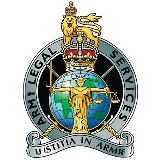*/

Used wisely, ChatGPT can become part of a chambers’ daily toolkit to maximise efficiency, practice development and EDI, says Rowan Caffull
Ever since the start of my career in a barristers’ chambers over 15 years ago, I have been fascinated by the continued history and tradition of the profession. This is part and parcel of our justice system, and I believe it is critical that we maintain as much of that tradition and history as possible. However, I also believe it is vitally important that we recognise the need to grow and evolve with technology, and to continue to seek to understand where technology can be of benefit to our beloved Bar. Failure to look for these opportunities and to continue to learn will, in my view, simply leave us falling behind.
Personally, I have a deep passion for technology. I believe that technology, used appropriately, can have a huge impact on the profitability and efficiency of a business. Efficiency, specifically, is key for me. I pride myself on being efficient and am always looking for efficiencies in the way we all work in chambers. There are thousands of relatively simple technological tools that can be used to make people more efficient. I could talk for days about password managers and collaboration tools but those are, perhaps, for another article.
ChatGPT, as I see it, is simply another one of those efficiency tools.
Of course, as with any new technology, it must be used with caution, but while there is a lot to be cautious about with the rise of AI and ChatGPT, I see a huge amount of opportunity here for driving efficiency in the clerks room and chambers administration. Used wisely, ChatGPT can become part of a practice manager’s daily toolkit to assist them with the running of a busy chambers.
Firstly, we must acknowledge the small print. ChatGPT does get things wrong. It does have hallucinations and will sometimes give information that isn’t entirely (or at all) accurate. Anything you use ChatGPT for must be checked. ChatGPT is a creative writing tool – it is not a search engine and it should not be used (at least in its current form) to give you answers to anything. It should be assumed that ChatGPT knows nothing, and that you need to give it all the data it needs to construct a written response.
We should also be aware that ChatGPT is not confidential. Every conversation you have with ChatGPT is logged, including any personal data you share, and it may be used as training data for its platform. If you are going to seriously consider using ChatGPT based AI as a business, I would encourage you to speak to your providers about a private ChatGPT install. Although this won’t negate the need for caution around the output from ChatGPT, it would hopefully give some peace of mind around the security of the data being inputted.
Despite all of those warnings, I do believe that ChatGPT, used correctly, can be a brilliant tool to increase efficiencies in a chambers setting.
Clerks will often be required to write a difficult email to a client, perhaps responding to complaints, setting out complicated fee structures, or even chasing for payment. Achieving the right tone and structure in those emails can sometimes take a long time, and this is one place that I would encourage clerks to try ChatGPT. It is the ultimate tool for writers’ block, and rather than spending 40 minutes staring at a computer screen wondering where to start, ChatGPT will produce a draft for you in seconds. Of course, it doesn’t (yet) know your writing style or your relationship with the person you are emailing, and nor does it understand the full context. You will therefore likely find yourself re-wording much of the ChatGPT attempt, but it can give you a starting point, which is often the hardest part.
You could apply the same principle to the drafting of chambers policies, or perhaps reports for the management committee. Although ChatGPT is unlikely to ever give you a perfect response that you can simply copy and paste, I have found that it will often produce a helpful structure to a document, which you can tweak and adapt as you require.
For barristers, along with the production of marketing materials and assistance with articles as has been discussed in previous editions of Counsel, I believe ChatGPT could be of significant benefit in analysing documents and producing summaries. You simply need to feed the data into the engine and ask for whatever style of analysis or summary you are seeking.
We have seen that Zoom has recently embedded this technology into their virtual meeting services, meaning that you can have a Zoom meeting and, a few minutes later, be given a ChatGPT-generated summary of that meeting, with the agreed action points ready for circulation. Privacy concerns aside, this embedding of the service is going to become commonplace, and we will soon see that almost all of our daily software packages have some form of AI integration.
For barristers and practice managers, one of the most exciting areas in AI will be thinking about individual member practice development.
ChatGPT is just one product in a collection of technologies known as ‘Generative Artificial Intelligence’ (GenAI). ChatGPT, as mentioned above, is currently a creative writing tool, but there are other GenAI products currently available and in development that will significantly enhance the capabilities for practice development. As this AI technology develops, I believe it is going to be a valuable tool in researching and analysing market trends, conducting competitor analysis and looking for potential threats and opportunities in the market. I believe the use of this technology will become commonplace in the field of practice development meetings and practice analysis.
In future, I expect that practice managers will be able to use this technology to analyse the expected income of a member based on all of the data the diary system knows both historically and looking forward, and possibly be able to run an impact assessment based on different scenarios, for example a member taking a period of extended leave.
It wouldn’t surprise me to see the technology being used for some really positive steps in relation to EDI (equality, diversity and inclusion) – looking at the spread of opportunities across a practice group and ensuring the fair distribution of cases.
The development of this technology is moving at an impressive rate, and I truly believe that the possibilities for barristers and chambers are endless. The question for readers to consider is whether you and your chambers are ready to adapt and invest where required.

Ever since the start of my career in a barristers’ chambers over 15 years ago, I have been fascinated by the continued history and tradition of the profession. This is part and parcel of our justice system, and I believe it is critical that we maintain as much of that tradition and history as possible. However, I also believe it is vitally important that we recognise the need to grow and evolve with technology, and to continue to seek to understand where technology can be of benefit to our beloved Bar. Failure to look for these opportunities and to continue to learn will, in my view, simply leave us falling behind.
Personally, I have a deep passion for technology. I believe that technology, used appropriately, can have a huge impact on the profitability and efficiency of a business. Efficiency, specifically, is key for me. I pride myself on being efficient and am always looking for efficiencies in the way we all work in chambers. There are thousands of relatively simple technological tools that can be used to make people more efficient. I could talk for days about password managers and collaboration tools but those are, perhaps, for another article.
ChatGPT, as I see it, is simply another one of those efficiency tools.
Of course, as with any new technology, it must be used with caution, but while there is a lot to be cautious about with the rise of AI and ChatGPT, I see a huge amount of opportunity here for driving efficiency in the clerks room and chambers administration. Used wisely, ChatGPT can become part of a practice manager’s daily toolkit to assist them with the running of a busy chambers.
Firstly, we must acknowledge the small print. ChatGPT does get things wrong. It does have hallucinations and will sometimes give information that isn’t entirely (or at all) accurate. Anything you use ChatGPT for must be checked. ChatGPT is a creative writing tool – it is not a search engine and it should not be used (at least in its current form) to give you answers to anything. It should be assumed that ChatGPT knows nothing, and that you need to give it all the data it needs to construct a written response.
We should also be aware that ChatGPT is not confidential. Every conversation you have with ChatGPT is logged, including any personal data you share, and it may be used as training data for its platform. If you are going to seriously consider using ChatGPT based AI as a business, I would encourage you to speak to your providers about a private ChatGPT install. Although this won’t negate the need for caution around the output from ChatGPT, it would hopefully give some peace of mind around the security of the data being inputted.
Despite all of those warnings, I do believe that ChatGPT, used correctly, can be a brilliant tool to increase efficiencies in a chambers setting.
Clerks will often be required to write a difficult email to a client, perhaps responding to complaints, setting out complicated fee structures, or even chasing for payment. Achieving the right tone and structure in those emails can sometimes take a long time, and this is one place that I would encourage clerks to try ChatGPT. It is the ultimate tool for writers’ block, and rather than spending 40 minutes staring at a computer screen wondering where to start, ChatGPT will produce a draft for you in seconds. Of course, it doesn’t (yet) know your writing style or your relationship with the person you are emailing, and nor does it understand the full context. You will therefore likely find yourself re-wording much of the ChatGPT attempt, but it can give you a starting point, which is often the hardest part.
You could apply the same principle to the drafting of chambers policies, or perhaps reports for the management committee. Although ChatGPT is unlikely to ever give you a perfect response that you can simply copy and paste, I have found that it will often produce a helpful structure to a document, which you can tweak and adapt as you require.
For barristers, along with the production of marketing materials and assistance with articles as has been discussed in previous editions of Counsel, I believe ChatGPT could be of significant benefit in analysing documents and producing summaries. You simply need to feed the data into the engine and ask for whatever style of analysis or summary you are seeking.
We have seen that Zoom has recently embedded this technology into their virtual meeting services, meaning that you can have a Zoom meeting and, a few minutes later, be given a ChatGPT-generated summary of that meeting, with the agreed action points ready for circulation. Privacy concerns aside, this embedding of the service is going to become commonplace, and we will soon see that almost all of our daily software packages have some form of AI integration.
For barristers and practice managers, one of the most exciting areas in AI will be thinking about individual member practice development.
ChatGPT is just one product in a collection of technologies known as ‘Generative Artificial Intelligence’ (GenAI). ChatGPT, as mentioned above, is currently a creative writing tool, but there are other GenAI products currently available and in development that will significantly enhance the capabilities for practice development. As this AI technology develops, I believe it is going to be a valuable tool in researching and analysing market trends, conducting competitor analysis and looking for potential threats and opportunities in the market. I believe the use of this technology will become commonplace in the field of practice development meetings and practice analysis.
In future, I expect that practice managers will be able to use this technology to analyse the expected income of a member based on all of the data the diary system knows both historically and looking forward, and possibly be able to run an impact assessment based on different scenarios, for example a member taking a period of extended leave.
It wouldn’t surprise me to see the technology being used for some really positive steps in relation to EDI (equality, diversity and inclusion) – looking at the spread of opportunities across a practice group and ensuring the fair distribution of cases.
The development of this technology is moving at an impressive rate, and I truly believe that the possibilities for barristers and chambers are endless. The question for readers to consider is whether you and your chambers are ready to adapt and invest where required.
Used wisely, ChatGPT can become part of a chambers’ daily toolkit to maximise efficiency, practice development and EDI, says Rowan Caffull

By the Chartered Governance Institute UK Ireland

Q and A with Major Susie Brooke, Legal Officer in Army Legal Services

Have you considered being a barrister in the British Army? Here’s an insight into a career in Army Legal Services

Clare describes her journey from Crown Prosecution Service legal trainee to Senior Crown Prosecutor, a typical ‘day in the life’ and the inspiration she draws from her career

What's it like being a legal trainee at the Crown Prosecution Service? Amy describes what drew her to the role, the skills required and a typical day in the life

Barristers can learn more about the varied arenas in which their mediation skills can be deployed at the Civil Mediation Council Annual Conference on 6 and 7 November 2024